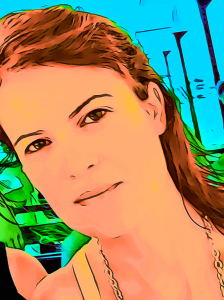116 Letter from Dora Agapito

Dear fellow female colleagues,
It is such an honour and a pleasure to be part of this book and share my experience of over ten years working in academia in tourism studies. During this time, I had the opportunity to develop my work in Portugal and the UK and build a network with some great colleagues worldwide. From my perspective, one of the most important benefits of working in academia, in tourism specifically, is to have the chance to collaborate with colleagues in any part of the world and to learn about unique destinations and cultures. In this brief letter, I reflect on some principles and learnings that have guided my work, which I firmly believe are crucial to building up our professional reputation.
Be rigorous in all tasks and avoid the temptation of choosing quantity over quality. Feeling proud of our work and doing the best we can in a particular moment under specific circumstances is vital to keep improving. If we are always rushing and feeling our contribution is not relevant, then making an effort to prioritising things is key. So, reflect on specific tasks that can be useful for others and yourself. Also, do not diminish small things, though, as they can contribute to your growth as a researcher, teacher, colleague, practitioner, and person in general. This process can positively impact others.
Build your network, maintaining your values and principles. One more paper, project, promotion or [fill the blank] do not worth losing your values and principles from sight. You should be proud of your decisions and of your interactions with others in all roles that you may have: researcher, teacher, editor, reviewer, colleague, manager, student.
Do not allow others to add their name on a specific work, such as a paper, before yours just for politeness if you truly feel this is unfair. Speak for yourself objectively and, if needed, speak for others.
Don’t be too hard on yourself and avoid comparing yourself to others. It is good to be inspired by other women and men who can be seen as role models, but it is not positive to compare yourself to them constantly. You have your own identity, abilities and circumstances. Respect your own rhythm. You can make decisions, but you cannot control everything. Always try to learn something from specific situations, whether you classify them as positive or negative. Every time, there are opportunities to learn, which is always positive.
Always prioritise your well-being. This one is a big work in progress! Repeating like a mantra: one more paper, project or [fill in the blank] do not worth losing my well-being from sight. Taking care of our well-being also has a positive effect on others. Try as much as you can to be organised in your tasks and keep a written record so you can see clearly what you have already committed to before committing to new tasks and deadlines. From my perspective, it is preferable for someone to be disappointed if you decline an invitation explaining your reasons objectively than later on to be in a position of not being able to fulfil the tasks you committed to delivering. Allow time for all dimensions in your life and make sure you enjoy them. Don’t rush yourself.
Last, share your knowledge with others, have a great career in tourism and be happy!
Warmly,

Dora Agapito
Research Centre for Tourism, Sustainability and Well-being, Universidade do Algarve, Portugal

